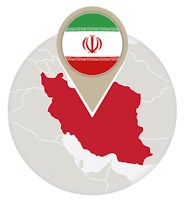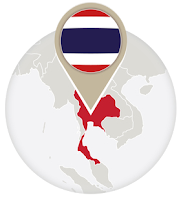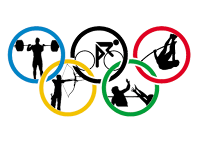In the future days, which we seek to make secure, we look forward to a world founded upon four essential human freedoms.
The first is freedom of speech and expression–everywhere in the world.
The second is freedom of every person to worship God in his own way–everywhere in the world.
The third is freedom from want–which, translated into world terms, means economic understandings which will secure to every nation a healthy peacetime life for its inhabitants-everywhere in the world.
The fourth is freedom from fear–which, translated into world terms, means a world-wide reduction of armaments to such a point and in such a thorough fashion that no nation will be in a position to commit an act of physical aggression against any neighbor–anywhere in the world.
- Franklin Delano Roosevelt, United States President, 6 January, 1941
Tomorrow marks the 75th anniversary of Franklin D. Roosevelt's "Four Freedoms" speech in his annual address to the U.S. Congress prior to American entry into World War II. The war had already raged on in Europe for sixteen months; F.D.R wanted to justify the provision of military aid to American allies and to convince citizens who favored isolationism to support the war efforts. Roosevelt sought to garner this support by reminding the American people that their very existence was threatened by foreign aggression and that the values on which the country was founded were in peril. But the speech was not the first time the president had discussed the freedoms.
In July 1940, six months before the address, Roosevelt called reporters into his home to announce his new presidential library. It was an election year; there was speculation that he would run for an unprecedented third term, but other indicators pointed to his retirement. Discussions turned to the war in Europe and raised anxiety in the room.
"You might say there are certain freedoms," Roosevelt told the reporters. “The first I would call ‘freedom of information,’ which is terribly important. It is a much better phrase than ‘freedom of the press,’ because there are all kinds of information so that the inhabitants of a country can get news of what is going on in every part of the country and in every part of the world without censorship and through many forms of communication.”
He went on to talk about the second freedom - freedom of religion - before saying, "Then, a third freedom is the freedom to express one's self as long as you don't advocate the overthrow of Government. That is a different thing. In other words, the kind of expression that we certainly have in this country, and that they have in most democracies. That, I think, is an essential of peace-I mean permanent peace."
The fourth freedom mentioned in that press conference was freedom from fear. A reporter then asked him about what would be the third freedom in his address to Congress. The president responded, "I had that in mind but forgot it. Freedom from want—in other words, the removal of certain barriers between nations, cultural in the first place and commercial in the second place. That is the fifth, very definitely."
He eventually did run for a third term and won, paving the way for his famous address to Congress. His initial "freedom of information" was subsumed in the address as "freedom of speech and expression," an understanding which is as common today as it was then. In Roosevelt's time, the term "freedom of information" was relatively new, though the concept was not. It seemed the term was a buzzword that was making its way around policy circles. Indeed, when the new term "freedom of information" was en vogue in the United Nations, it covered "freedom of expression," but the approach has been inverted so that "freedom of expression" includes "freedom of information," just as Roosevelt had done in 1941.
Now, America was as complicated a place then as it is today, and some of what ended up in Roosevelt's address to Congress had political implications that ran along ideological lines. But his fundamental points were universal - and universally opposed by tyrants and tycoons alike.
Tyrants across the planet continue to oppose such freedoms. As there was no free press in Nazi Germany and no truth in the press that was still operating there (even the Associated Press was duped into posting Nazi propaganda in a secret deal over photographs), the poster child for modern dictatorship would certainly have censored the internet like they now do in oppressive countries around the world. He would have loved the ease at which he and his fellow petty demons could post fake news and propaganda as today's tyrants do. He may have taken to Twitter to post outrageous statements and start diplomatic rows. Whatever he would have done in the internet age, without a doubt it would have violated basic human rights. Freedom of speech, expression, and information have no place in countries where human dignity is not valued.
F.D.R. concluded the remarks with "The question really comes down to whether we are going to continue to seek those freedoms or whether we are going to give up."
It's the people who can change things. We see brave Iranians who are fed up with being denied those four freedoms taking to the streets to express their disapproval despite the dangerous consequences. We see journalists, bloggers, and activists being arrested seemingly daily for their expressions online. We see advocate organizations like EFF, Access Now, CIPESA, Bolo Bhi, and SMEX pushing the ideals that we consider basic human rights.
They haven't given up. We're not giving up. Are you with us?
___
The first is freedom of speech and expression–everywhere in the world.
The second is freedom of every person to worship God in his own way–everywhere in the world.
The third is freedom from want–which, translated into world terms, means economic understandings which will secure to every nation a healthy peacetime life for its inhabitants-everywhere in the world.
The fourth is freedom from fear–which, translated into world terms, means a world-wide reduction of armaments to such a point and in such a thorough fashion that no nation will be in a position to commit an act of physical aggression against any neighbor–anywhere in the world.
- Franklin Delano Roosevelt, United States President, 6 January, 1941
 |
| Norman Rockwell's depiction of the four freedoms |
In July 1940, six months before the address, Roosevelt called reporters into his home to announce his new presidential library. It was an election year; there was speculation that he would run for an unprecedented third term, but other indicators pointed to his retirement. Discussions turned to the war in Europe and raised anxiety in the room.
"You might say there are certain freedoms," Roosevelt told the reporters. “The first I would call ‘freedom of information,’ which is terribly important. It is a much better phrase than ‘freedom of the press,’ because there are all kinds of information so that the inhabitants of a country can get news of what is going on in every part of the country and in every part of the world without censorship and through many forms of communication.”
He went on to talk about the second freedom - freedom of religion - before saying, "Then, a third freedom is the freedom to express one's self as long as you don't advocate the overthrow of Government. That is a different thing. In other words, the kind of expression that we certainly have in this country, and that they have in most democracies. That, I think, is an essential of peace-I mean permanent peace."
The fourth freedom mentioned in that press conference was freedom from fear. A reporter then asked him about what would be the third freedom in his address to Congress. The president responded, "I had that in mind but forgot it. Freedom from want—in other words, the removal of certain barriers between nations, cultural in the first place and commercial in the second place. That is the fifth, very definitely."
He eventually did run for a third term and won, paving the way for his famous address to Congress. His initial "freedom of information" was subsumed in the address as "freedom of speech and expression," an understanding which is as common today as it was then. In Roosevelt's time, the term "freedom of information" was relatively new, though the concept was not. It seemed the term was a buzzword that was making its way around policy circles. Indeed, when the new term "freedom of information" was en vogue in the United Nations, it covered "freedom of expression," but the approach has been inverted so that "freedom of expression" includes "freedom of information," just as Roosevelt had done in 1941.
Now, America was as complicated a place then as it is today, and some of what ended up in Roosevelt's address to Congress had political implications that ran along ideological lines. But his fundamental points were universal - and universally opposed by tyrants and tycoons alike.
Tyrants across the planet continue to oppose such freedoms. As there was no free press in Nazi Germany and no truth in the press that was still operating there (even the Associated Press was duped into posting Nazi propaganda in a secret deal over photographs), the poster child for modern dictatorship would certainly have censored the internet like they now do in oppressive countries around the world. He would have loved the ease at which he and his fellow petty demons could post fake news and propaganda as today's tyrants do. He may have taken to Twitter to post outrageous statements and start diplomatic rows. Whatever he would have done in the internet age, without a doubt it would have violated basic human rights. Freedom of speech, expression, and information have no place in countries where human dignity is not valued.
F.D.R. concluded the remarks with "The question really comes down to whether we are going to continue to seek those freedoms or whether we are going to give up."
It's the people who can change things. We see brave Iranians who are fed up with being denied those four freedoms taking to the streets to express their disapproval despite the dangerous consequences. We see journalists, bloggers, and activists being arrested seemingly daily for their expressions online. We see advocate organizations like EFF, Access Now, CIPESA, Bolo Bhi, and SMEX pushing the ideals that we consider basic human rights.
They haven't given up. We're not giving up. Are you with us?
___











